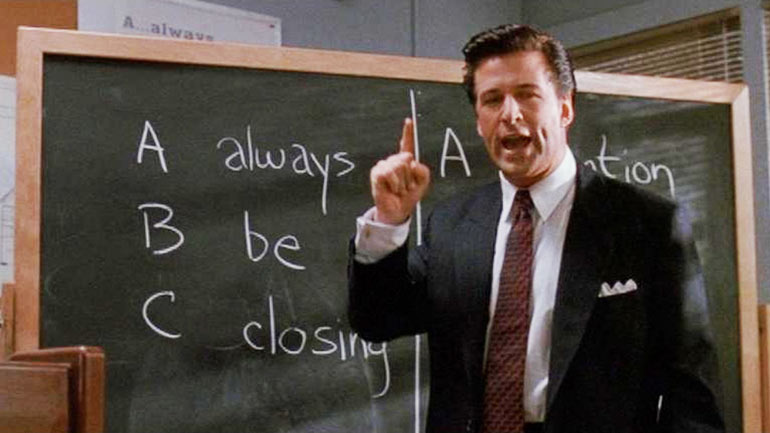 I jumped into the world of entrepreneurship a few years back, and it’s certainly been an interesting ride. Don’t let anyone fool you — business ownership requires a lot of hard work. No matter what you do, you’re going to make mistakes in the beginning. However, once you get all the wrinkles ironed out, the benefits of self-employment are numerous.
I jumped into the world of entrepreneurship a few years back, and it’s certainly been an interesting ride. Don’t let anyone fool you — business ownership requires a lot of hard work. No matter what you do, you’re going to make mistakes in the beginning. However, once you get all the wrinkles ironed out, the benefits of self-employment are numerous.
In order to help you along your way, here are five typical mistakes entrepreneurs make, as well as some suggestions on how to avoid them:
- Not doing enough research. One of the worst mistakes you can make as a first-time entrepreneur is not researching the industry or niche you want to penetrate. With the Internet, you have a world of resources at your fingertips, so take advantage of it. Several pieces of information you should keep an eye out for include current demand, competition, average startup costs, and when you can expect to become profitable. I conducted thorough research, and therefore went into business with my eyes wide open.
- Not saving money. If saving money is not at the top of your list, sustaining your business over many years will be incredibly difficult. First, create a simple budget by recording all fixed and variable monthly expenses, as well as an estimate for monthly income. This can give you a rough idea of how much money you have to spend — and if you realize you are spending more than you are earning, you’ll know it’s time to cut back. In order to cut costs or reduce expenses, consider purchasing used equipment to outfit your office. Turn down your office heat or air conditioning, and make sure you are not wasting any energy. And if you are spending a fortune on advertising, consider implementing free social media campaigns instead. Many business fail due to money woes, so doing whatever you can in advance to prevent these troubles is key.
Over-reliance on outside financing. Instead of begging for money from angel investors or venture capitalists, look to your own checking account for financing your startup. You’ll maintain more control over your company’s direction and enjoy a bigger percentage of the profits. I financed my own business by bootstrapping, and I have no regrets. Of course, you don’t want to overextend your personal finances and go into debt to start your business, so some outside business financing may be necessary.- Not fully utilizing social media. The best way to gain the most exposure for your small business is via social media marketing, which offers the additional benefit of being free. Start accounts on Facebook and Twitter and post helpful content to your potential customers, making the experience as interactive as possible by personally replying to each person who responds. Once your popularity begins to grow, consider conducting weekly TweetChats on topics relevant to your business, and offer giveaways to boost your presence on Facebook.
- Expanding too soon. While my website enjoyed modest success early on, I ultimately decided against pursuing an aggressive growth strategy. Expanding a business too rapidly can negatively affect the level of customer service you provide and can also overwhelm your staff. Once you’ve got a good thing going, the last thing you want to do is cause damage to your brand by overwhelming your workforce. Expand conservatively, and you are more likely to enjoy success in the long run.
Through all of my trials and tribulations, I always relied on one key piece of advice a successful small business owner once gave me. He said, “Andrew, stay passionate about what you’re doing, work hard, learn from your mistakes, and success will eventually come your way.” Entrepreneurship isn’t easy, but once you’ve obtained success, the benefits make it worth all of your hard work.
What other mistakes should entrepreneurs avoid when just starting out?
Andrew Schrage is co-owner of the MoneyCrashers.com Personal Finance website. The site strives to educate readers on a wide variety of topics, including how to budget for retirement, tips to increase your income, and the best small business credit cards. Schrage hopes to make a meaningful difference in people’s lives as they work to gain and maintain financial freedom.
The Young Entrepreneur Council (YEC) is an invite-only organization comprised of the world’s most promising young entrepreneurs. In partnership with Citi, the YEC recently launched #StartupLab, a free virtual mentorship program that helps millions of entrepreneurs start and grow businesses via live video chats, an expert content library and email lessons.



 “Although it is historical fiction, Forrest Gump is one of my favorite inspirational movies that has entrepreneurial ties. My takeaway is that everyone has challenges that they have to overcome in life, but how you respond to them is what separates the people who succeed from those who don’t. Also, it is important to persevere and take advantage of unique opportunities presented to you.”
“Although it is historical fiction, Forrest Gump is one of my favorite inspirational movies that has entrepreneurial ties. My takeaway is that everyone has challenges that they have to overcome in life, but how you respond to them is what separates the people who succeed from those who don’t. Also, it is important to persevere and take advantage of unique opportunities presented to you.” “I always watch Twister with a sense of awe. Yes, it’s fiction, but the idea that you believe so much in a solution to risk life and limb to get it out there is inspiring. Throughout the film, they continually test and adapt the solution until it finally works. I may not be putting my solution in front of a tornado, but it’s that level of dedication I’m striving towards.”
“I always watch Twister with a sense of awe. Yes, it’s fiction, but the idea that you believe so much in a solution to risk life and limb to get it out there is inspiring. Throughout the film, they continually test and adapt the solution until it finally works. I may not be putting my solution in front of a tornado, but it’s that level of dedication I’m striving towards.” “This movie talks about Coco Chanel and her journey to starting her company. The true takeaway is that you never know what’s going to work in your business, and that sometimes starting with hats will lead to perfume or vice versa. Being uncompromising about your tastes will also lead to having a strong brand.”
“This movie talks about Coco Chanel and her journey to starting her company. The true takeaway is that you never know what’s going to work in your business, and that sometimes starting with hats will lead to perfume or vice versa. Being uncompromising about your tastes will also lead to having a strong brand.” “Zoolander contains the best entrepreneurship wisdom I know: “What is this? A center for ants?…The building has to be at least … three times bigger than this!” It’s a great lesson in remembering your dreams should be at least three times bigger than what you originally thought – and that they’ll be at least three times as much work!”
“Zoolander contains the best entrepreneurship wisdom I know: “What is this? A center for ants?…The building has to be at least … three times bigger than this!” It’s a great lesson in remembering your dreams should be at least three times bigger than what you originally thought – and that they’ll be at least three times as much work!” “Dave is a classic Kevin Kline movie where he stands in as the President. As the chief, he needs to lead a massive organization: he has to find his own leadership style, rally a team and make compromises on his vision. The most relevant takeaway: he’s successful specifically because he has an outside opinion. Startup success relies on being open-minded and re-examining the way things are done.”
“Dave is a classic Kevin Kline movie where he stands in as the President. As the chief, he needs to lead a massive organization: he has to find his own leadership style, rally a team and make compromises on his vision. The most relevant takeaway: he’s successful specifically because he has an outside opinion. Startup success relies on being open-minded and re-examining the way things are done.” “No, I’m not encouraging or condoning anyone who commits fraud, violates SEC regulations, or acts like a sociopath. However, that does not mean there aren’t some great things for entrepreneurs in the movie. One positive takeaway from Boiler Room is Seth’s relentless hustle and scrappiness. He just crushes through problems (both good and bad) and get’s stuff done!”
“No, I’m not encouraging or condoning anyone who commits fraud, violates SEC regulations, or acts like a sociopath. However, that does not mean there aren’t some great things for entrepreneurs in the movie. One positive takeaway from Boiler Room is Seth’s relentless hustle and scrappiness. He just crushes through problems (both good and bad) and get’s stuff done!” “From the greatest book ever written, there are lots of movie adaptations, but the 1972 version with Sophia Loren is best. What better representation of an entrepreneur than an idealist who sets out to revive some important value in the world while the world thinks he’s crazy? Through a series of entrepreneurial “adventures.” he comes to greater realizations about life, love, meaning and value.”
“From the greatest book ever written, there are lots of movie adaptations, but the 1972 version with Sophia Loren is best. What better representation of an entrepreneur than an idealist who sets out to revive some important value in the world while the world thinks he’s crazy? Through a series of entrepreneurial “adventures.” he comes to greater realizations about life, love, meaning and value.” “A film I particularly enjoyed is called Startup.com, which chronicles the short history of the failed website govWorks.com. This site was created to provide citizens an easy way to pay traffic tickets to municipal governments, among other things. The film teaches you that you can’t launch a business based solely on an idea; you must do thorough research it to see if it’s viable and can last.”
“A film I particularly enjoyed is called Startup.com, which chronicles the short history of the failed website govWorks.com. This site was created to provide citizens an easy way to pay traffic tickets to municipal governments, among other things. The film teaches you that you can’t launch a business based solely on an idea; you must do thorough research it to see if it’s viable and can last.” “Andy Dufrense is an entrepreneur, even if it’s not obvious: he grows a small tax preparation business inside prison walls into a library and education system into a full-fledged successful prison break. The scene that sticks with me is when Dufrense finds out that his letter writing campaign has paid off — he responds that he’s going to write even more letters, just like a good founder would.”
“Andy Dufrense is an entrepreneur, even if it’s not obvious: he grows a small tax preparation business inside prison walls into a library and education system into a full-fledged successful prison break. The scene that sticks with me is when Dufrense finds out that his letter writing campaign has paid off — he responds that he’s going to write even more letters, just like a good founder would.” “Your great idea will strike in the midst of a challenge. Classic Diane Keaton, career-driven new mom in the ’80s, quits her demanding job to focus on a baby. While in the midst of her breakdown, she discovers an unserved market with a huge demand in natural baby food. The lesson to take away is that opportunities are everywhere – if you’re paying attention!”
“Your great idea will strike in the midst of a challenge. Classic Diane Keaton, career-driven new mom in the ’80s, quits her demanding job to focus on a baby. While in the midst of her breakdown, she discovers an unserved market with a huge demand in natural baby food. The lesson to take away is that opportunities are everywhere – if you’re paying attention!”











 It’s never the wrong time to de-clutter and simplify. Just as you should bring fresh air into a stuffy house, you can also breathe life into a company to achieve an improved state of success.
It’s never the wrong time to de-clutter and simplify. Just as you should bring fresh air into a stuffy house, you can also breathe life into a company to achieve an improved state of success. It is not easy to be the CEO of an up-and-coming startup, especially when you are frequently out of your office talking to investors and the actual time you spend in contact with your team is limited. It gets even more complicated when you manage multiple teams working in different cities.
It is not easy to be the CEO of an up-and-coming startup, especially when you are frequently out of your office talking to investors and the actual time you spend in contact with your team is limited. It gets even more complicated when you manage multiple teams working in different cities.







